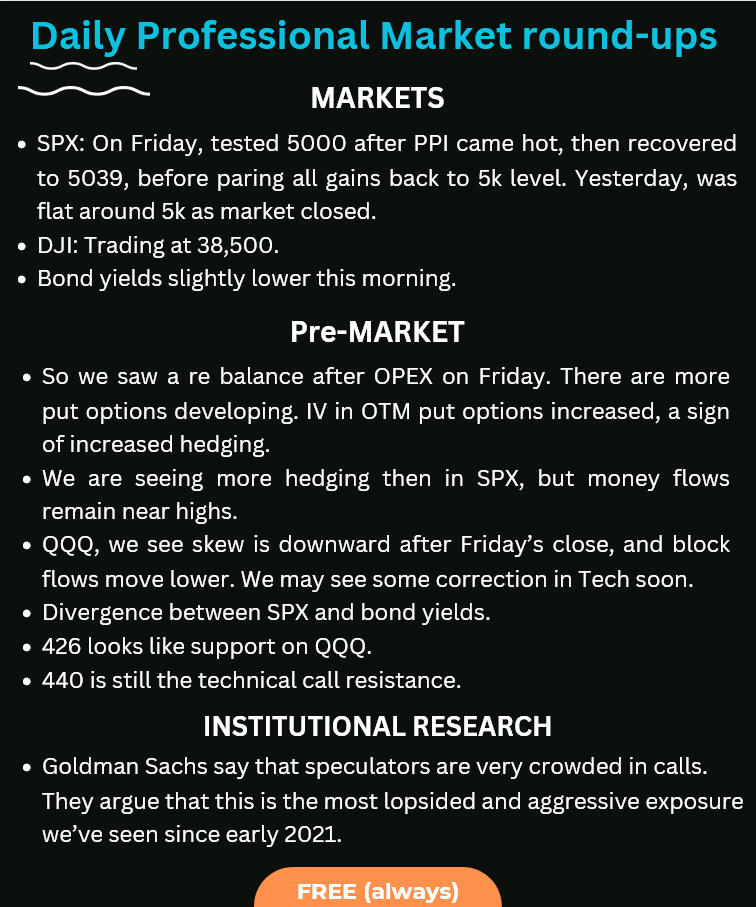D-Wave Quantum (QBTS) Stock Drop In 2025: A Deep Dive Into The Reasons

Table of Contents
The year 2025 witnessed a significant downturn in D-Wave Quantum (QBTS) stock, leaving investors reeling. This article delves deep into the potential causes behind this dramatic drop in D-Wave Quantum's stock price, exploring the multifaceted factors that contributed to the market's negative reaction. We will analyze market trends, technological challenges, and competitive pressures to provide a comprehensive understanding of the situation. Understanding the reasons behind this decline is crucial for anyone considering investing in D-Wave Quantum stock or other quantum computing stocks.
Market Sentiment and Investor Expectations
The plunge in QBTS stock in 2025 can be partly attributed to shifts in market sentiment and investor expectations. Several factors contributed to this negative shift.
Overvalued Stock Price
Prior to the 2025 drop, there was speculation that QBTS stock might have been overvalued. This overvaluation could have been fueled by several factors:
- Comparison to Competitors: Compared to other companies in the quantum computing sector, like IBM and Google, D-Wave's valuation might have appeared inflated, especially considering its market share and revenue generation.
- Pre-Drop Hype: The excitement surrounding quantum computing as a whole may have led to inflated expectations for D-Wave, driving up the stock price beyond its fundamental value.
- Speculative Investments: A significant portion of the investment in QBTS stock may have been speculative, driven by the potential of quantum computing rather than its current performance. When this speculative bubble burst, the stock price plummeted.
General Market Downturn
The 2025 QBTS stock drop didn't happen in isolation. A broader economic downturn or market correction could have significantly exacerbated the decline.
- Correlation with Market Indices: The correlation between QBTS stock performance and overall market indices like the NASDAQ Composite or S&P 500 needs to be analyzed to determine the extent to which the general market downturn influenced the drop.
- Macroeconomic Factors: Global events like recessions, interest rate hikes, or geopolitical instability can create a risk-off sentiment among investors, leading to widespread sell-offs, particularly affecting growth stocks like those in the quantum computing sector.
- Risk-Off Sentiment: Investors often move away from riskier assets during market corrections. As a relatively new and less established company, D-Wave Quantum's stock would likely be more vulnerable to this risk-off sentiment.
Technological Challenges and Development Delays
D-Wave's stock performance is intrinsically linked to its technological advancements and the competitive landscape of the quantum computing field.
Competition in the Quantum Computing Field
The quantum computing industry is fiercely competitive. The emergence and progress of rival companies presented significant challenges for D-Wave.
- Key Competitors: IBM and Google, with their respective quantum computing initiatives, pose significant competitive threats. Breakthroughs made by these rivals could overshadow D-Wave's advancements, negatively impacting investor confidence.
- Competitive Breakthroughs: If competitors achieved significant milestones in qubit count, coherence times, or error correction, it could diminish the perceived value and competitive advantage of D-Wave's technology.
- Market Share Impact: A loss of market share to competitors directly impacts investor perception of D-Wave's long-term prospects, contributing to a stock price decline.
Difficulties in Scaling Quantum Computers
Scaling quantum computing technology is incredibly challenging. D-Wave's progress (or lack thereof) in this area significantly impacts its stock valuation.
- Scaling Complexities: Building larger, more powerful, and error-corrected quantum computers is technologically complex and resource-intensive.
- D-Wave's Scaling Efforts: A close analysis of publicly available information regarding D-Wave's efforts to scale its quantum computers is necessary to understand the limitations and potential setbacks contributing to the stock drop.
- Commercial Application Implications: Limitations in scaling directly translate to limitations in the applicability and commercial viability of the technology, affecting investor confidence and the stock price.
Financial Performance and Business Strategy
D-Wave's financial performance and strategic decisions also played a significant role in the 2025 stock drop.
Missed Revenue Projections
Failure to meet projected revenue targets is a major red flag for investors.
- Revenue Comparison: A direct comparison of actual revenue figures with predicted revenue figures reveals the extent of the shortfall and its potential impact on investor sentiment.
- Reasons for Missed Targets: Analyzing the reasons behind missed targets, such as slower-than-expected adoption of quantum computing technology, is crucial for understanding the underlying issues.
- Impact on Financial Stability: Missed revenue projections can raise concerns about the company's financial stability and long-term viability, potentially leading to a decline in the stock price.
Changes in Business Strategy or Leadership
Significant changes within the company can also impact investor confidence and stock valuation.
- Leadership Changes: Any changes in leadership, particularly unexpected departures of key personnel, can create uncertainty and negatively affect the stock price.
- Strategic Shifts: Changes in the company's business focus, market approach, or overall strategy can cause investor concerns, especially if these changes are perceived as unfavorable.
- Partnership Changes: The loss of significant partnerships or collaborations can signal a weakening of the company's position in the market and its future prospects, negatively affecting the stock.
Conclusion
The 2025 D-Wave Quantum (QBTS) stock drop was likely a multifaceted event, resulting from a combination of negative market sentiment, technological hurdles faced by the company, and its financial performance and strategic decisions. Understanding these factors is crucial for investors. Continued monitoring of D-Wave Quantum's technological progress, competitive landscape, and financial performance is essential for making informed decisions regarding QBTS stock and other investments in the quantum computing sector. Stay informed about future developments in D-Wave Quantum (QBTS) stock and quantum computing to make sound investment choices.

Featured Posts
-
 Arda Gueler I Sevindirecek Real Madrid In Yeni Teknik Direktoerue Kim Olacak
May 21, 2025
Arda Gueler I Sevindirecek Real Madrid In Yeni Teknik Direktoerue Kim Olacak
May 21, 2025 -
 College De Clisson Le Port De La Croix Catholique Questionne
May 21, 2025
College De Clisson Le Port De La Croix Catholique Questionne
May 21, 2025 -
 Ancelotti Den Klopp A Real Madrid Icin Dogru Secim Mi
May 21, 2025
Ancelotti Den Klopp A Real Madrid Icin Dogru Secim Mi
May 21, 2025 -
 Espn Uncovers The Key To The Bruins Transformative Offseason
May 21, 2025
Espn Uncovers The Key To The Bruins Transformative Offseason
May 21, 2025 -
 The Bust Of College Boom Towns How Falling Enrollment Affects Local Economies
May 21, 2025
The Bust Of College Boom Towns How Falling Enrollment Affects Local Economies
May 21, 2025
